Playing Baseball and Making Life Decision
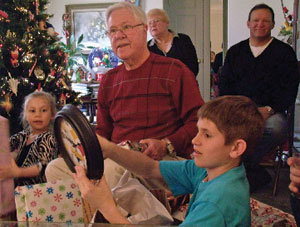
A Young Man of Action
Looking back, it’s easy to see that Purdy is a man with a history of taking action.
He was always a St. Louis Browns fan, even when the Cardinals were the big name in St. Louis. In 1952, team owner Bill Veeck and the Browns had an essay contest with the prize being batboy for the team. Purdy knew he had to send something in. He won.
Halfway through the season, the regular catchers said they didn’t like catching for batting practice.
“I’ll do it,” the 14-year-old high school catcher said.
And they let the teenager do it. He became the lucky charm for some of the pitchers. In the 1953 season, they hired another batboy and told the 15-year-old Purdy he’d continue to be the batting practice and bullpen catcher.
He caught behind Hall of Fame member Rogers Hornsby in a hitting exhibition and was a friend of Dizzy Dean. He caught in both Yankee Stadium and Fenway Park.
“I warmed-up legends like Satchel Paige, Virgil Trucks, Harry ‘The Cat’ Brecheen, Don Larsen, Bob Turley, Ned Garver and Tommy Byrne. Satchel always advised me to be the best at what I chose to do in life. That always remained with me,” Purdy said.
Baseball and Decision-making
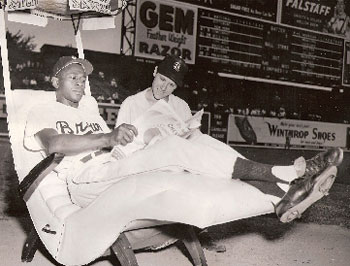
The young catcher didn’t know how well his baseball experiences would serve him, but the adult sees it clearly.
“As a catcher I saw plays right in front of me and had to make split second decisions about what I was going to do.”
Purdy didn’t go further with baseball than those incredible years with the Browns and a couple of years in college, but he saw how much he used the same timing for his work as a 20 year high school principal in the St. Louis School District.
“I had to make a ton of decisions when I was principal. It’s just part of the job. The situations were often different, but I knew I had to see the plays right in front of me and take quick action.”
Purdy made the decision to have prostate cancer surgery the same way.
Dealing With the Diagnosis
He joined Dr. Catalona’s PSA Study in 1990 and had yearly tests through 1997.
That year, after the PSA test, when he was ready to leave, he was reminded, “You’re not finished yet. You haven’t had the DRE (digital rectal exam).”
Purdy remembers well the conversation after the DRE.
“Mr. Purdy, I don’t want to alarm you but I feel something that’s not right. I would recommend a biopsy.”
Purdy was shocked. And even more shocked when he got the report: half of the core samples had positive results.
His baseball experience came into play.
“I did some research and then made the decision for surgery almost immediately. I wanted the cancer out. And I wanted the best person to do it. That was Dr. Catalona,. And it sure didn’t hurt that I found out he performed Stan Musial’s surgery. That really did it for me,” Purdy said.
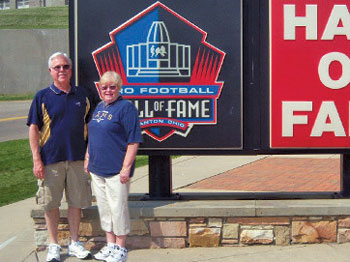
Sharing His Experience
Purdy shared his experiences with prostate cancer from the beginning and still does.
His first reaction to the diagnosis would be expected.
“I was devastated. I thought it was the end of the world,” he said.
In fact, though, the surgery was so successful that his life wasn’t much affected, even shortly after the surgery. His wife, Mary Beth, went with him to all the doctor meetings, and she participated in his recovery as the companion walker – walking being the most important recommended rehab activity.
“My wife and I walked constantly. In the dead of a cold winter, with snow on the ground, even in the dark, we put on big heavy coats and walked.”
At the time, he had retired as principal and was an elected St. Louis City school board member.
“I remember going to a board meeting with my catheter still in. I didn’t miss anything,” he said.
Purdy didn’t have lasting side effects.
Now, years later, he still has an annual checkup with Dr. Catalona and does PSA follow up tests every six months. The results have always been negligible.
“I’ve had other health issues but none related to prostate cancer. It’s not something I think about as part of my life,” he said.
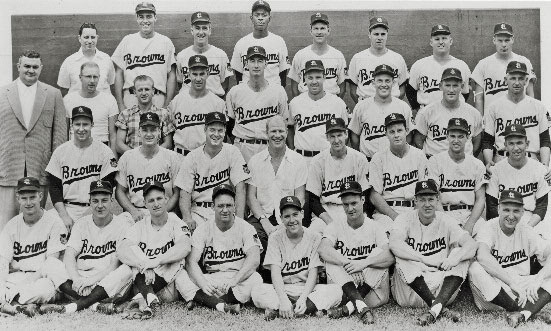
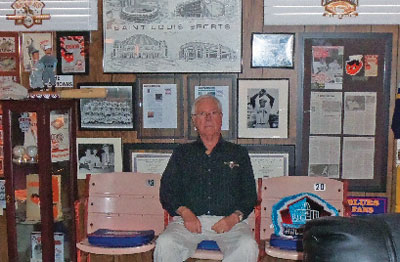
row center.
Purdy’s Thoughts
“When anyone tells me they’ve been diagnosed, I tell them, ‘You shouldn’t put off making decisions about a treatment plan.’ ”
His family is one of his best reasons for the advice.
“My diagnosis and treatment meant I’m able to be the elder in a multi-generational family. My 3 adult children and their families, which include 5 grandchildren and three great grandchildren, are joys to me.”
Purdy is clear about what he recommends.
“I believe men should stick with the PSA and DRE on a regular basis. I know some men think the DRE is embarrassing but once you’ve done it a few times, it isn’t anything.”
The results of baseball timing on Purdy’s prostate cancer treatment: “I saw the situation and made a quick but informed decision. I don’t think I’d be here without the PSA Study and Dr. Catalona’s magic hands,” Purdy said.











